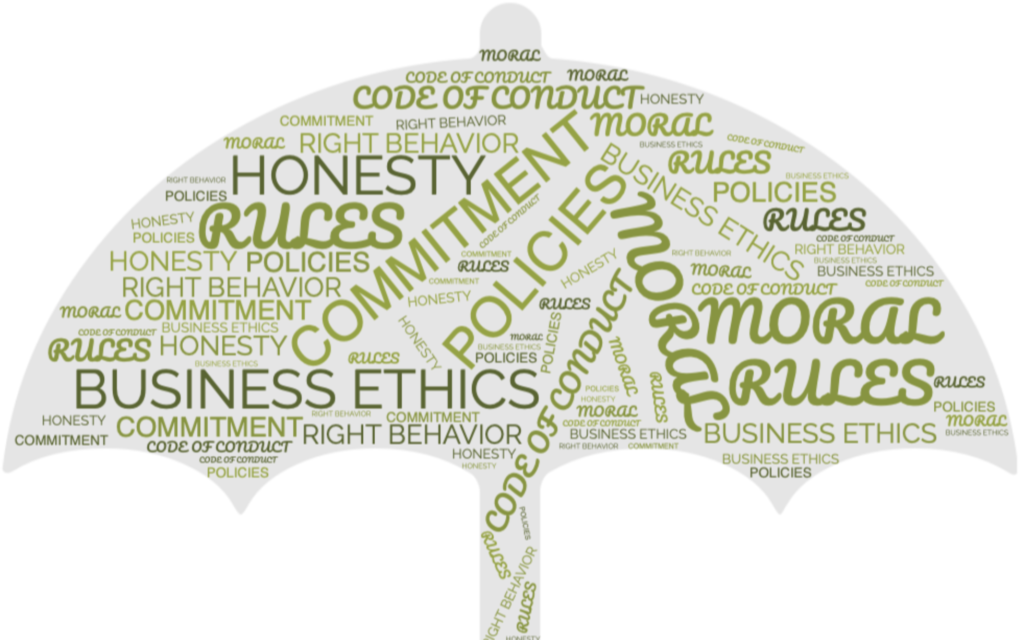In recent times, organisations have been shaken by the recent IT firm scandals and unethical practices that have left a lasting impact on their reputation and credibility. These incidents serve as a stark reminder of the urgent need for HR policy makers to not only preach about the importance of following the code of business ethics but also to lead by example in adhering to these principles themselves. This article aims to highlight the critical role of HR policy makers in upholding ethical standards within organizations, with a particular focus on their interactions with external agencies such as recruitment firms. It is essential for HR and other support functions like admin and finance, dealing with external vendors, to be vigilant and ensure that the company’s code of business ethics is upheld in all business transactions.
The Role of HR in Upholding Ethical Standards
HR policy makers are responsible for creating and implementing policies that govern the behavior and conduct of employees within an organization. However, their role extends beyond merely enforcing these policies; they must embody the values and principles outlined in the code of business ethics. HR policy makers should lead by example and serve as role models for ethical behavior, demonstrating integrity, fairness, and transparency in their own actions.
HR’s Influence in Recruitment and External Interactions
Recruitment is a critical process where HR policy makers have a significant impact on upholding ethical standards. When dealing with external agencies, such as recruitment firms, HR must ensure that ethical practices are followed throughout the entire recruitment process. This includes conducting thorough due diligence on recruitment agencies, verifying the credentials of candidates, and refraining from engaging in any activities that compromise the integrity of the hiring process.
HR policy makers should establish a stringent selection process for external agencies, ensuring that they adhere to the organization’s code of business ethics. This includes evaluating their track record, conducting regular audits, and monitoring their compliance with ethical guidelines. By setting high ethical standards for external agencies, HR policy makers can reduce the risk of unethical practices infiltrating the recruitment process.
Collaboration with Support Functions for Ethical Compliance
Ethical compliance is not the sole responsibility of the HR department. Other support functions, such as admin and finance, also have a role to play in upholding the code of business ethics. HR policy makers should collaborate closely with these departments to ensure that ethical considerations are integrated into their processes and interactions with external vendors.
For example, in the finance department, HR policy makers can work together with finance professionals to establish robust vendor selection procedures. This includes evaluating vendors’ adherence to ethical practices, conducting regular audits of financial transactions, and implementing strong internal controls to prevent any unethical behavior.
Similarly, in the admin department, HR policy makers can emphasize the importance of maintaining ethical standards when dealing with external vendors. This includes ensuring transparency in vendor selection, establishing clear guidelines for vendor interactions, and regularly reviewing vendor performance to detect any potential ethical breaches.
Leading the Way: HR as Ethical Champions
HR policy makers have a unique opportunity to be ethical champions within their organizations. By actively upholding the code of business ethics and setting high standards for ethical behavior, they can create a culture of integrity and inspire employees at all levels to follow suit.
HR policy makers should continuously educate and communicate with employees about the importance of ethical conduct, emphasizing the organization’s commitment to upholding these principles. This can be achieved through regular training programs, open discussions on ethical dilemmas, and the provision of channels for employees to report any concerns or violations of the code of business ethics.
Conclusion
HR policy makers play a crucial role in upholding the code of business ethics within organizations. It is not enough for HR to simply enforce ethical guidelines; they must lead by example and ensure that their own actions align with the principles outlined in the code. HR should be vigilant when dealing with external agencies, such as recruitment firms, to maintain the integrity of the hiring process. Moreover, collaboration with other support functions, such as admin and finance, is essential to create a holistic approach to ethical compliance.
By consistently adhering to ethical practices and promoting a culture of integrity, HR policy makers can instill trust, foster a positive work environment, and safeguard the organization’s reputation. Upholding the code of business ethics should be a collective effort involving all departments and employees, as it is the foundation for sustainable growth and long-term success.
click here to read other article


